It’s really the little things over time that shape us.
The big stuff like wars, famine, divorce, personal bankruptcy, or the death of a close family member- these are the moments where we learn about how we’re actually doing. The old adage says, “that which does not kill you will only make you stronger.” That’s true, but our chances of survival are much improved through the conditioning that comes from our attention to all the little things before and after these signature setbacks.
We get better at the things we do consistently. If we want to be prepared for life’s major challenges, we need to put in the work now. Unfortunately, most of us are getting better at all the wrong things, with our bad habits being some of the most consistent behaviors in our lives
Missing deadlines, running late, scrolling social media feeds, bickering with the spouse, coddling our children- these are daily, corrosive infractions, so diffuse in their ubiquity as to feel like a normal part of life. And perhaps they are “normal” in their frequency and manifestation, enough that too many of us are deluded into complacency and rendered numb to their destructive power. We bring almost no vigilance into the correction of these insidious habits, instead commiserating with others in a collective lowering of the bar. We trade ambition for validation and settle into our miseries, content to know that everyone else is doing the same.
And we destroy ourselves in the process.
Good Company
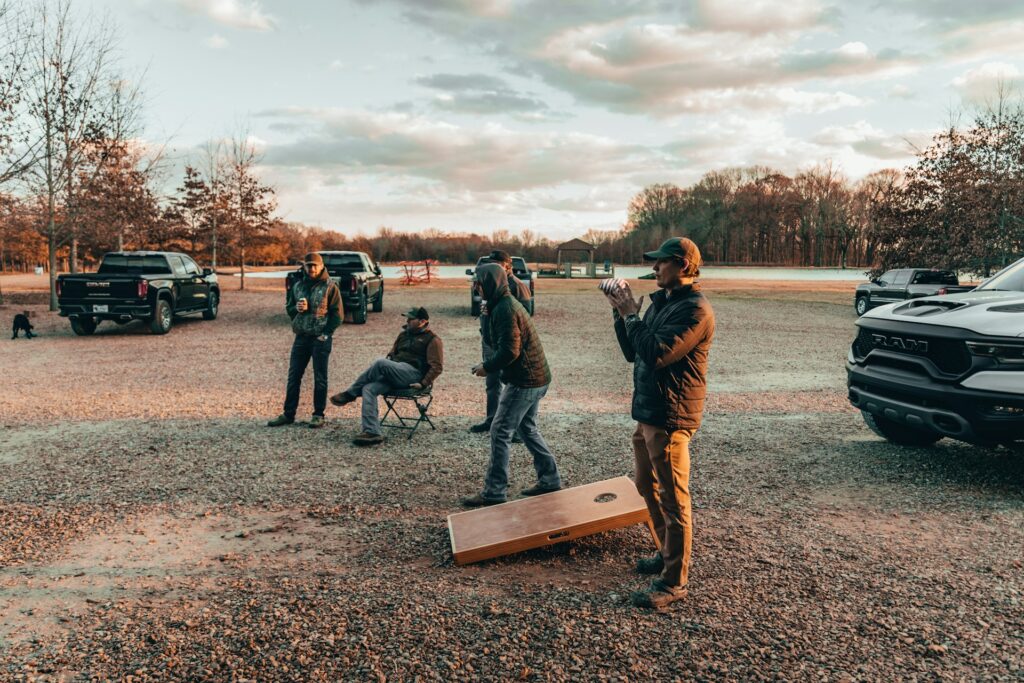
The Camp One homestead is situated in the mixed conifer forest of the Sierra foothills. There is plenty of vegetation for our eleven goats to browse. Heads up, they can nibble on pine, cedar, fir, madrone, and manzanita. Heads down, they’ve got native bunchgrasses, wild blackberry, mountain misery, St John’s wort, and English ivy. It’s a veritable feast for the goats as they clamber up and down the hillsides. Not only do we save money on feed, but we also save the time that would otherwise be used driving into town for hay or delivering it from our shed to their paddock multiple times a day.
Instead of all that, we just unlock their gate and herd them back in before nightfall. It’s an arrangement that seems to benefit them nutritionally and physically while allowing us to focus on other things. And it is exactly that shift in attention that led to a rather horrifying conversation with our neighbor, Tom.
Tom didn’t want to teach us a lesson. He just wanted bean bags.
He’s developed an interest in cornhole. He had an idea to make custom bean bags of a particular size and weight, but he doesn’t have a sewing machine. We do, so he came over to share his vision, but before we got into specifics he asked me what happened to our hills.
I didn’t understand.
“Did your goats do this? There’s nothing left. They ate everything holding this hill together. One big rain, and it’s all coming down. You’re telling me you didn’t even notice?”
I looked at the hillside.
Nothing but bare, loose dirt. I toed the slope sending a cascade of rubble down to the driveway below.
It was a landslide waiting to happen.
And, no. I hadn’t noticed.
Erosion
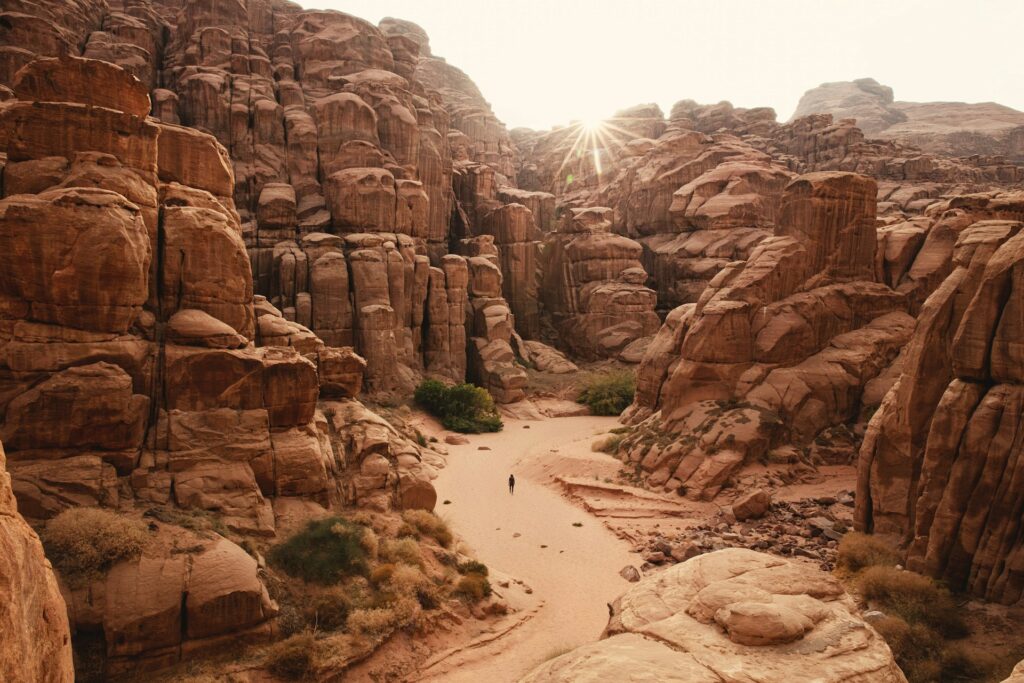
“That’s gonna cost you. Plant some ivy. Build a retaining wall. Do something or you’re going to have a problem.”
Tom offered his perfunctory advice before switching back to bean bags, and once we got his cornhole business settled he left me alone with my unstable pile of soil and dust.
How did this happen? How is it that our goats ate the land to destruction right beneath our feet?
Nibble by innocuous nibble. That’s how it happened.
We looked out the window, oblivious, marveling at their nimble persistence as they grazed the hillside. We listened for their reassuring bells, honored that they felt safe enough to stay close. In short, we enjoyed every minute of their spoliation.
And that’s how it goes with us.
We miss our deadlines because we enjoy the distractions that divert our attention, and so we build a legacy of irresponsibility. We run late because we set priorities that do not account for variables beyond our immediate concern, and so we build a legacy of selfishness. We scroll our social media feeds because we refuse to appreciate the moment we are in, and so we build a legacy of discontent. We bicker with our spouse because we see the advancement of our position as superior to the reception of theirs, and so we build a legacy of tyranny. And we coddle our children to avoid the discomfort of seeing them stumble, robbing the next generation of initiative and confidence.
These “little things” flow through our day like water through a sandstone ravine, carving us into canyons of irresponsible, selfish malcontents, terrorizing our partners and stunting our children. Our corruption emerges from underneath a pile of rationalizations. We’ve all wondered about that obnoxious young adult with the “good parents.”
But he is as we are.
Vigilance and Rehabilitation
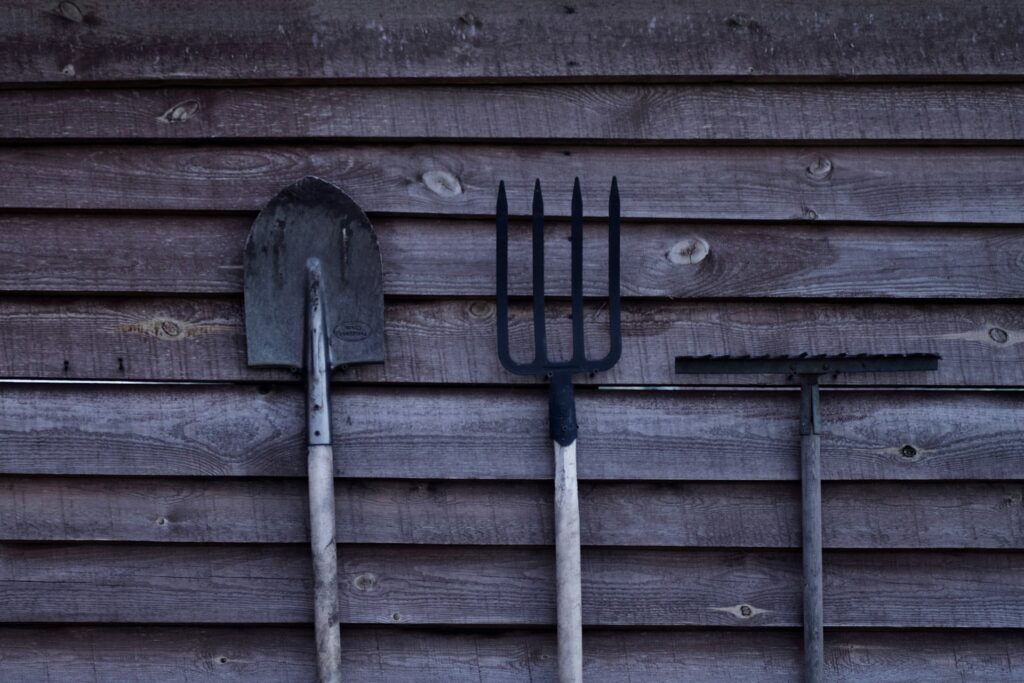
Tom dropped a bombshell that could not be ignored. Something had to be done.
We learned as much as we could about erosion control and land restoration. We had money budgeted for other projects, but they would have to wait. You can’t build without a firm foundation.
My youngest daughter and I picked up several 25-foot coils of straw wattle and a bunch of rebar posts that we cut down into 2-foot stakes. We dug long, shallow trenches into the hillside and unrolled our wattles into the depressions, driving the rebar stakes through them and into the earth to hold the wattle fast. If done correctly, the wattles would slow runoff from rain, encouraging any fallen water to settle into the ground.
Our next step was to purchase seed, lots of native grasses, yarrow, and fireweed. We needed plants adapted to the foothills with our long wet winters and dry summers. And then we watered daily for a couple of weeks.
The hillside is greening up beautifully, and this is the most important part of the story. Underneath that verdant blush of new growth is a network of fine roots weaving through the soil, binding it all together to firm up the land. The storms will inevitably come, and when they do we have a bit more confidence that the earth won’t dissolve from underneath us.
The crisis feels managed for now. Time will tell, but we are hopeful that months of ignorant neglect can be undone with some newfound awareness and a modicum of hard work. We are not experts in land management or erosion control, but understanding the “what and why” of our current dilemma seems to count for a lot.
Our Part
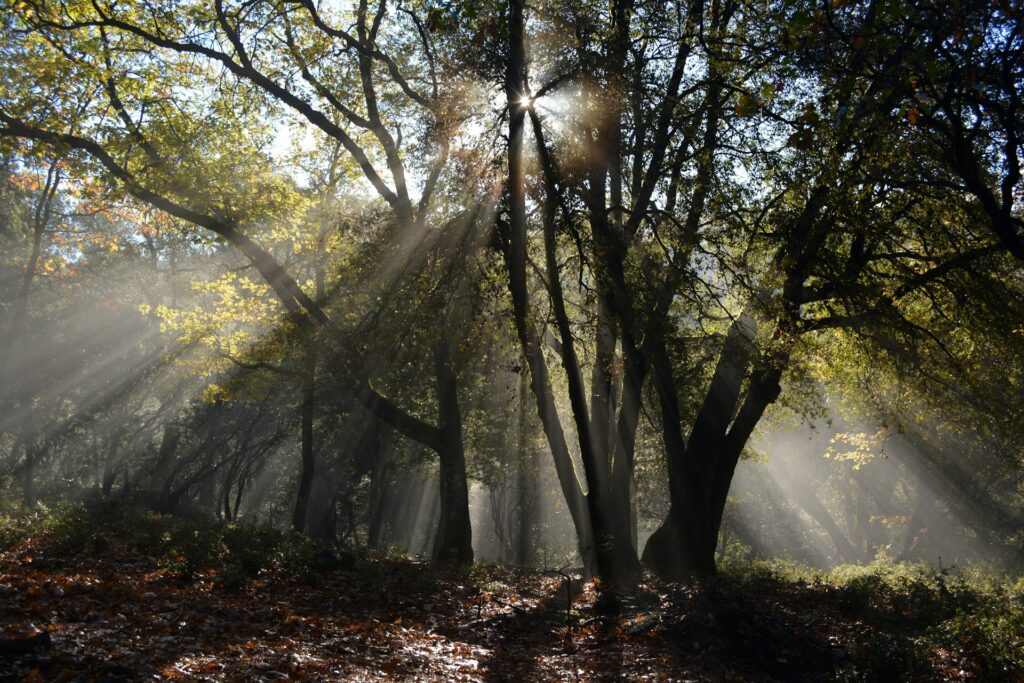
But understanding is not enough.
We also took responsibility for both the problem and the correction, and we’ve got some new growth to show for it.
We rearranged priorities, reallocated funds, made the time, and put in the effort. Through God’s help and permission, we’re seeing results. Will it be enough?
We don’t know. Outcomes are never really in our hands anyway.
What matters is that we are open to learning what others have to say about our situation. The important thing is how we respond to that information and that we have a grounded “why” behind the choices we make in our recalibrations. Also essential is that we monitor outcomes which we understand not as the results of our efforts, but as guidance steering us into new wisdom.
Behind so many of our troubles is a lack of intention and awareness. We don’t know what we don’t know. But the good news is that it seems an extended period of heedlessness can be corrected with just a little intention and effort. We might not be able to fix everything, but we’ll learn a lot and we’re not sure that there is much more of a point to our existence other than that.
Listen to the people.
And sweat at least some of the small stuff.
Leave a comment below for posterity or join us in the D&T Chautaqua Discord to discuss this post with other adventurous spirits from around the world.
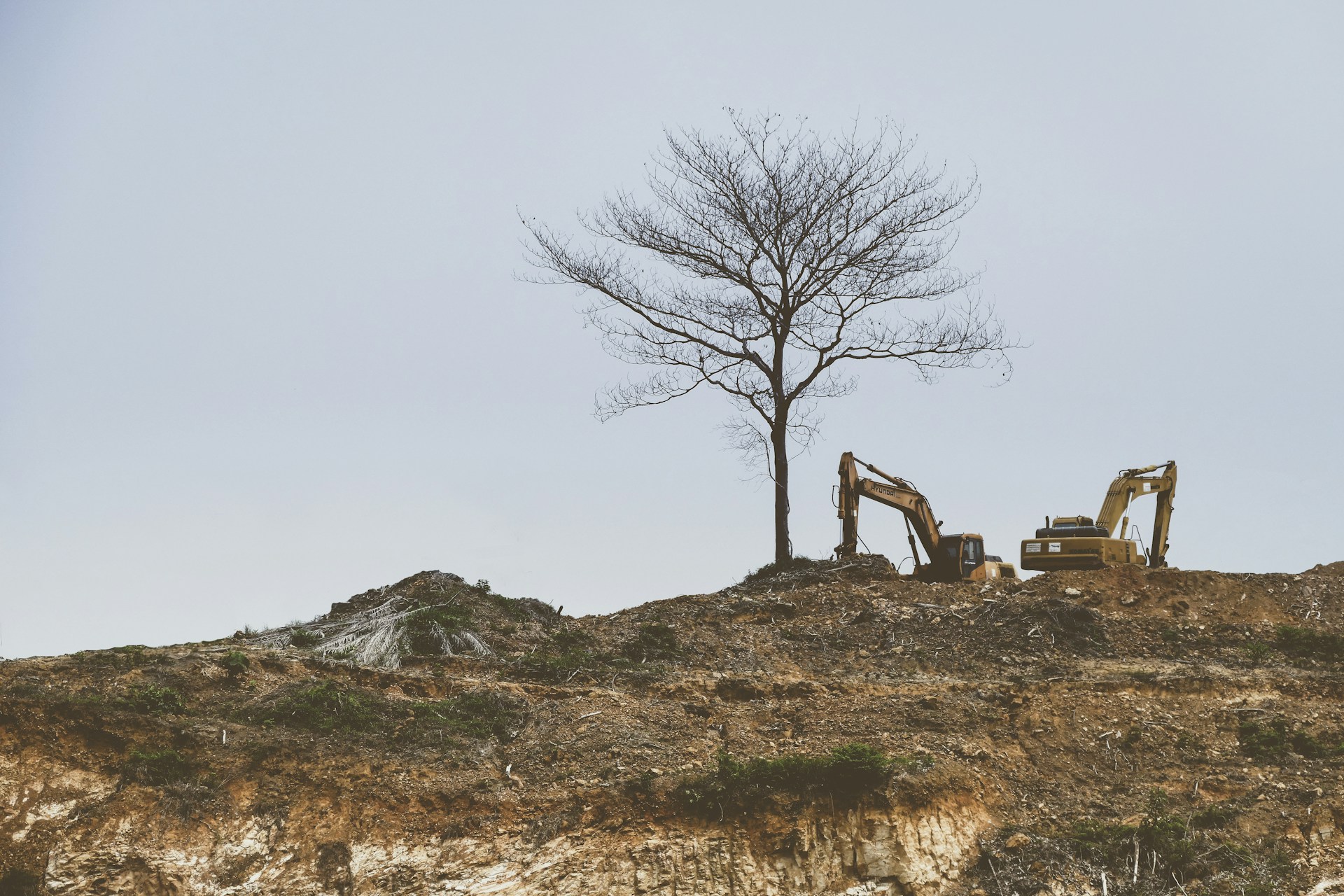
MashAllah great reminder and as always, enjoyable read.
Very few things bring more satisfaction than working the land with your child. May Allah continue to put barakah in your time with her
SubhanAllah, great metaphor. Perhaps another reason the Prophets (God’s peace and blessings be upon them) were shepherds.